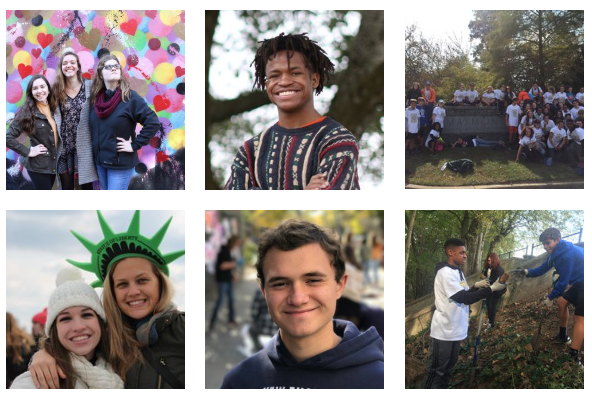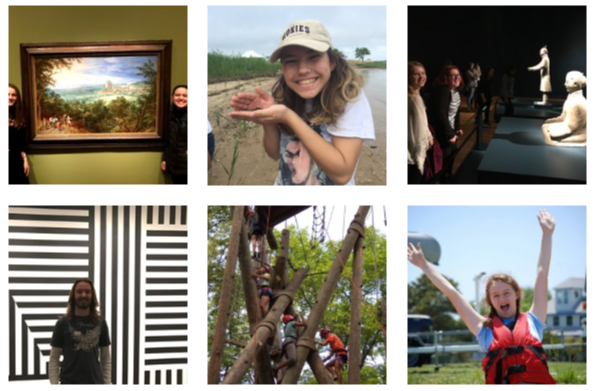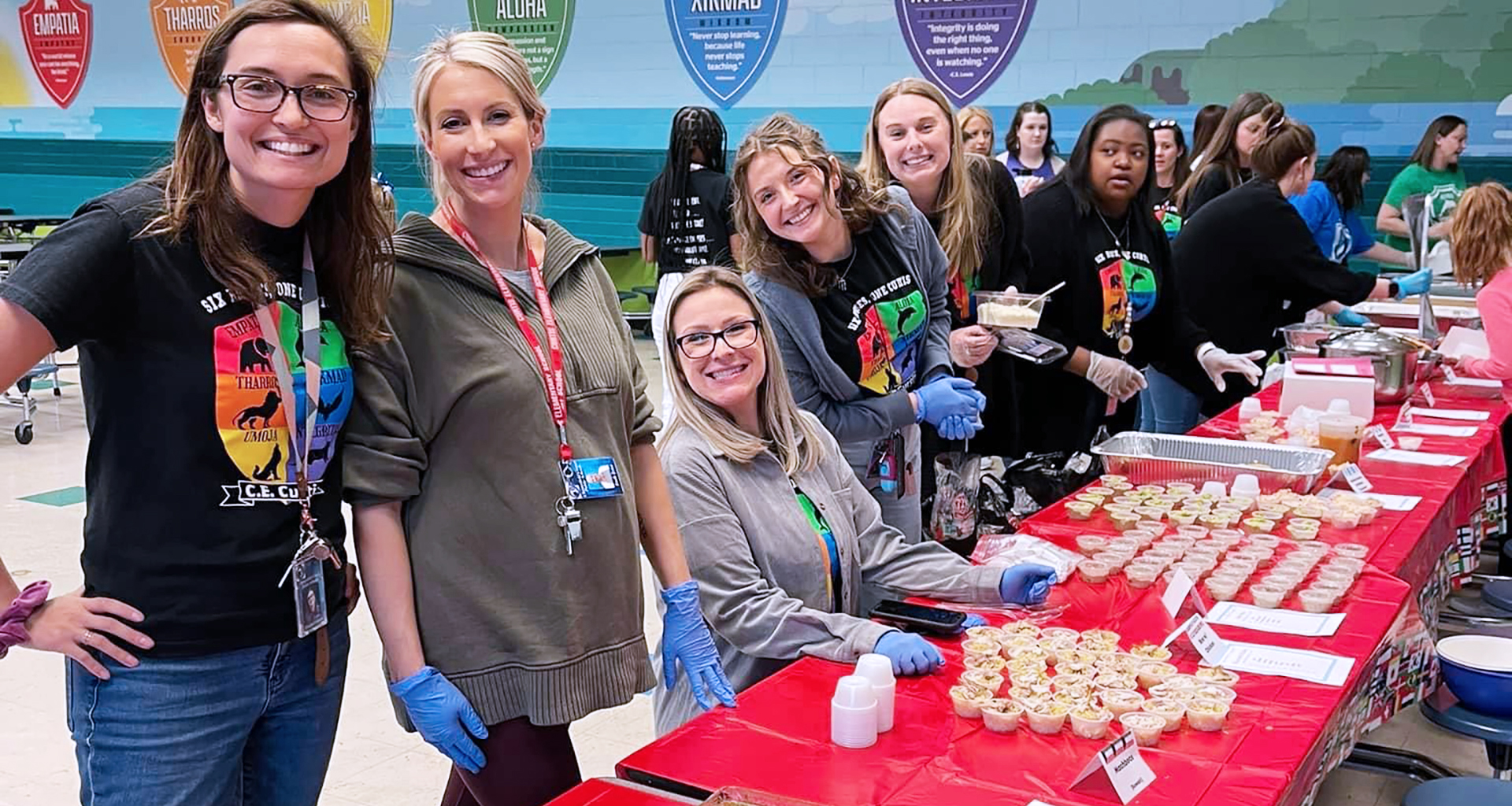Center for the Humanities Monacan High School 11501 Smoketree Drive North Chesterfield, VA 23236
Mark Davis - Program Coordinator 804.378.2480 x246
Our Mission
The Center for the Humanities exists to engage students in a rigorous, interdisciplinary learning environment that supports, develops, and encourages academic, intellectual, social, and emotional flourishing. Through the study of the liberal arts and humanities, students cultivate curiosity, creativity, imagination, and critical thinking so that our individual and collective past and present can shape the direction of our future.
Our History
The Humanities Center was founded in 2000. Our first class graduated in 2004. Since that time, the Center for the Humanities has produced hundreds of graduates who have entered an impressive variety of colleges and universities. These graduates have gone on to assume a diverse array of roles in the real world.
Humanities students are led through a challenging and engaging curriculum by award winning educators with diverse areas of expertise and years of teaching experience. Students share a core of classes with Humanities Faculty and their fellow Humanities students, but also take numerous classes outside the Center, where they become vital contributors to Monacan High School as a whole.
Through the study of the humanities, students are exposed to ideas and experiences in history, science, literature, philosophy, and the arts. As students read, write, and engage in discussion, they think critically, learn to express themselves clearly, and adapt to changing circumstances.
What kind of education will be most useful ten or fifteen years from now, when technologies we haven’t thought of yet are changing our lives? Those who have mastered the skills of listening carefully, asking insightful questions, and solving problems will be equipped for success no matter where the future takes us. These are the kinds of people who graduate from Monacan High School's Center for the Humanities.
Our students are curious about the world — where we have been and where we are going. They ask questions. They are interested in history, literature, languages, architecture, politics, science, philosophy, and the arts — and the cultural contexts from which they emerge. Our students read books (and blogs), watch films (and movies), and listen to symphonies (and songs). They have a voice — on the page and in conversation and debate. They have healthy and active imaginations. They learn through reading, listening, making, moving, and doing. They embrace the complexity and nuance found in the world and in each other. Our students are athletes, artists, performers, and volunteers - each remarkable and containing multitudes.


For some, studying the humanities is a life-long passion that inspires and directs educational and vocational interests. Many of these students continue to explore history, writing, and the visual arts. For others, studying the humanities and liberal arts builds a strong foundation of critical and creative thinking propelling learners towards STEM, Business, Finance, and more. Students arrive from different places with different perspectives, each with different destinations in mind. Each student discovers his or her own path and direction, not alone, but together, with support from teachers, families, and classmates.
As Humanities Graduates continue their trajectory of learning and growth, and further their formal education, in the arts and the sciences, we find them studying at variety of colleges and universities, both near and far. Our graduates study a wide range of disciplines, and they find our rigorous curriculum and our emphasis of service and citizenship has amply prepared them for their university studies - and the world beyond.
Our Graduates are Writers, Doctors, Artists, Scientists, Musicians, Engineers, Designers, Teachers, Programmers, Consultants, Curators, Lawyers, Lobbyists, Accountants, Physical Therapists, Editors, Psychologists, Managers, Ministers, Administrators, Officers, Researchers, Fiduciaries, Journalists, Etc.
“What I like best about Humanities are the open minds, thoughtful conversations, and variety of viewpoints that our curriculum encourages.”
- Member of the Class of 2008
“I have two favorite things about the Humanities: The curriculum and the family feel. I plan on attending a liberal arts college and the intense, but manageable Humanities Center curriculum will help me there. The experiences of working in groups and in Socratic seminars have been wonderful preparations. The other great thing about Humanities is how close we all get - the faculty and the students. I truly feel I have a strong family behind me.”
- Member of the Class of 2011
"I like the integration of the core classes within the program. When you learn about something in World History class, you may write about it in World Literature class. It takes your weak points in a subject and allows you to make these weaknesses some of your strong points."
- Member of the Class of 2011
A Rigorous Academic Program with a Heart
Welcome to the core of the Humanities Center - its academic program. This program is a challenging and rich academic experience that also weaves a sense of family among its participants.
The curriculum at the Humanities Center engages students in study that is both broad and deep. It immerses students in core humanities courses that connect the threads of social studies, literature and culture both chronologically and geographically. The result is a picture of the human experience that makes sense. In addition to the core Humanities courses, students will explore a broad range of challenging science, math and elective courses.
Because students have different entry points into World Language curriculum (some begin in Middle School), students are encouraged to consider taking five years of world language. Our minimum requirement is that students take four years of world language (including at least two years in high school). Two years of required physical education and health may be taken in place of an elective, as an after school class or a summer class. While specific upper level math and science courses are not administered through the Humanities curriculum, Humanities students are required to take math and science courses in each year of high school.
All Humanities core courses are honors level, or AP, and will lead to an Advanced Studies Diploma with a special Humanities seal. Colleges look favorably on students who participate in an academically rigorous program.
Humanities World History I
Humanities English 9
Perspectives on the Human Experience I
Humanities Biology
Humanities Geometry
World Language
Elective
Humanities AP Modern European History
Humanities English 10
Perspectives on the Human Experience II
Chemistry
Algebra II
World Language
Elective
Humanities AP U.S. History
Humanities AP Language and Composition (English 11)
Perspectives on the Human Experience III
Physics or AP Science
Math
World Language or Elective
Elective
Humanities AP Government
Humanities AP Literature and Composition
Perspectives on the Human Experience IV
Physics or AP Science
Math
World Language or Elective
Elective
**Students are required to complete 2 years of Health/PE and 1 year of Personal Finance/Economics. Students who wish to optimize their schedule for elective opportunities should consider completing those requirements through online and/or summer coursework.

Join our parent group Human Ties
Human Ties is the parent group supporting the Monacan High School Humanities Program. Our mission is to promote, support, and foster the advancement of The Center for Humanities and the education of the humanities by providing funding and volunteer services to enrich formal education and community cultural experiences in the humanities.